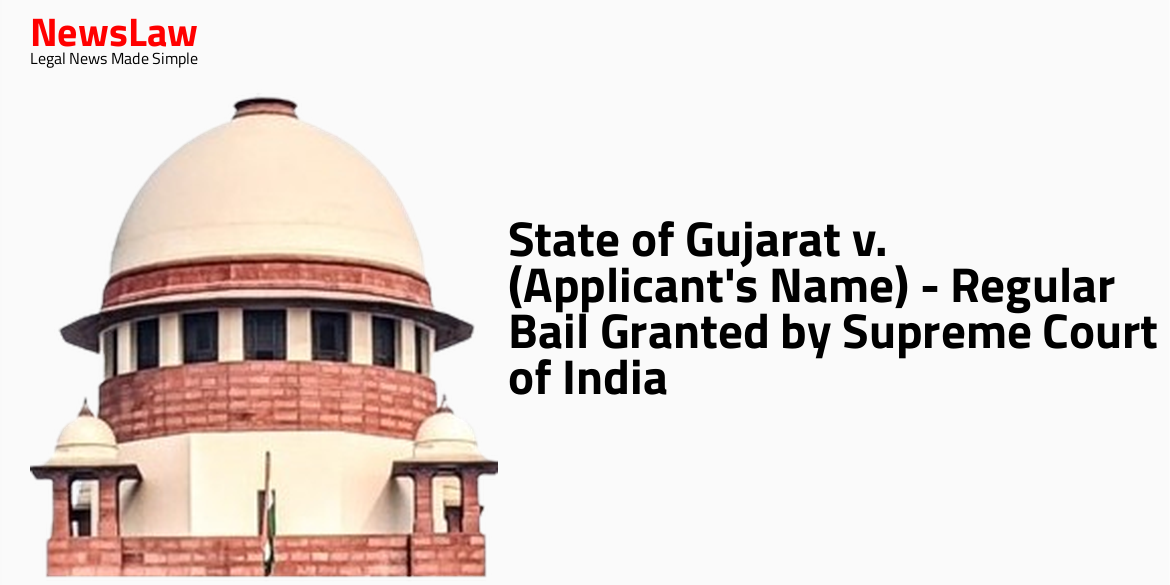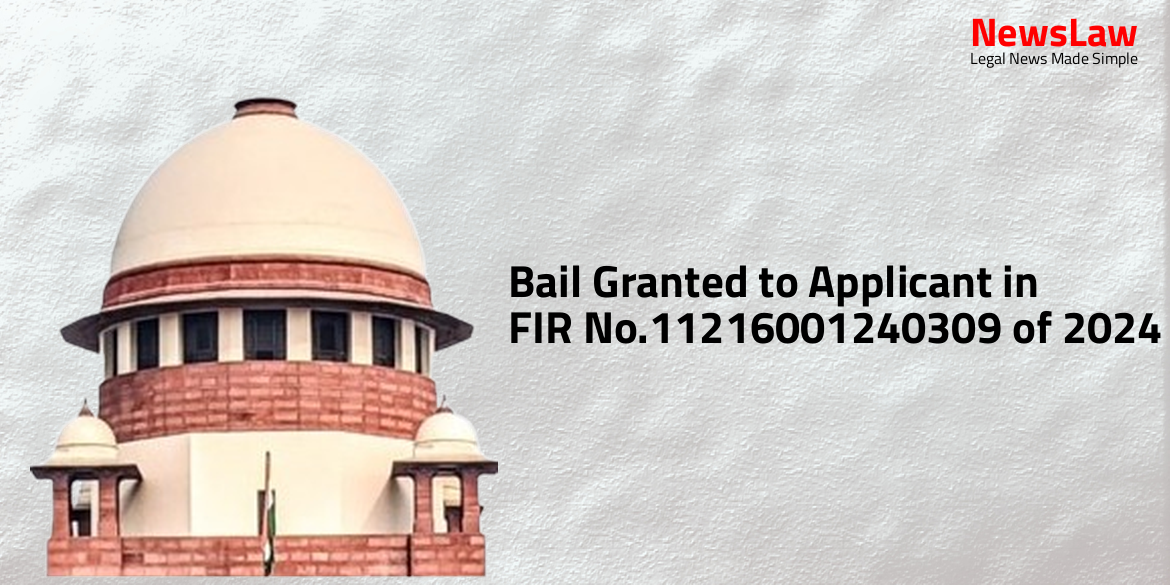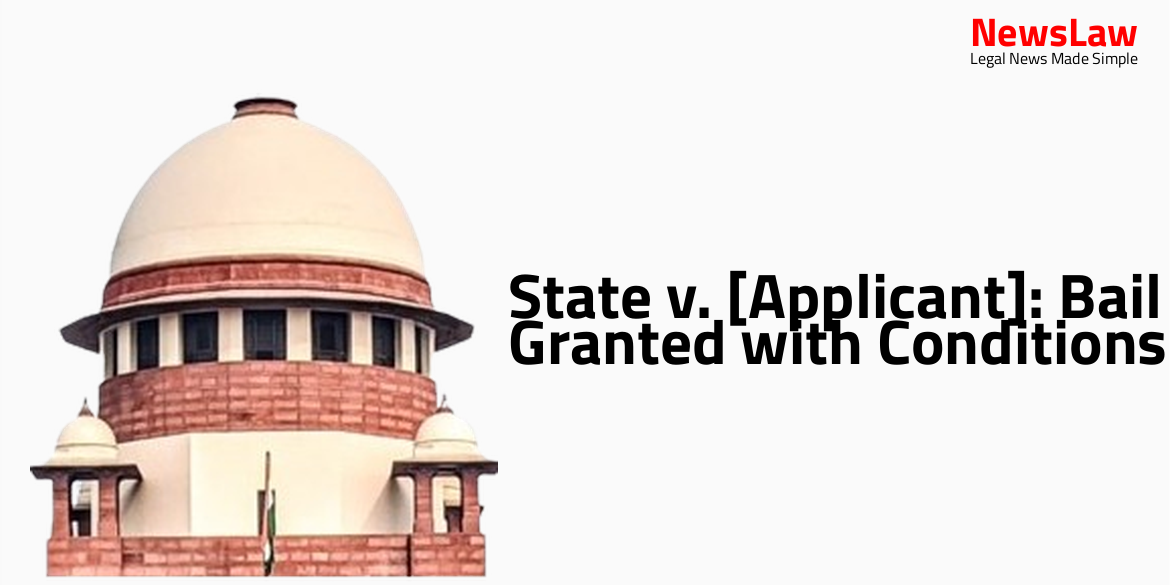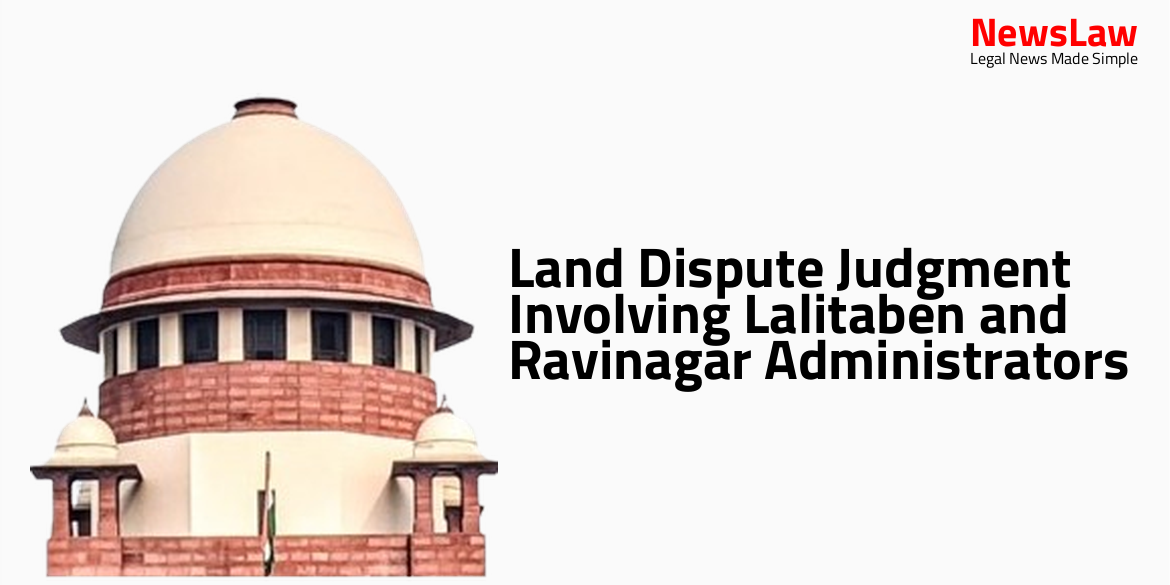In a landmark judgment, the Supreme Court of India has granted regular bail to (Applicant’s Name) in the case against the State of Gujarat. The decision marks a significant step in upholding the rights of the accused while ensuring a fair legal process. Stay tuned for more insights on this ruling.
Facts
- Learned APP waives service of notice of rule for respondent – State of Gujarat.
- The present application is filed under Section 439 of the Code of Criminal Procedure, 1973, for regular bail.
- The FIR in question is C.R. No.11993016230006/2023 registered with the Cyber Crime Police Station.
- The charges include Sections 406, 420, and 114 of the Indian Penal Code, along with Sections 66(C) and 66(D) of the IT Act.
Arguments
- The brother of the applicant has filed an affidavit undertaking to deposit the received amount of Rs.30,000 before the court within a month of the applicant’s release.
- The applicant will also file an affidavit reiterating the facts stated in his brother’s affidavit.
- The incident in question took place between 03.11.2023 to 28.11.2023, with the FIR filed on 15.12.2023 and the applicant arrested on 21.01.2024.
- The investigation is complete and the chargesheet has been submitted before the present bail application.
- The offences are exclusively triable by the Court of Magistrate, and the case is based on documentary evidence.
- The prosecution alleges the applicant acted as a Mediator, providing a bank account to a co-accused and receiving Rs.30,000 for that purpose; no other role is attributed to the applicant.
- The role of the present applicant is clearly spelt out in the chargesheet.
- The application may not be entertained as the role is well-defined.
- The learned APP for the respondent-State has opposed grant of regular bail based on the nature and gravity of the offence.
- The learned advocates for both parties do not press for a further reasoned order.
Analysis
- The applicant’s role at the time of the crime was considered
- The application is deemed to be allowed based on factual aspects
- The advocates representing both parties were heard
- Investigation papers were perused
- Allegations against the applicant and their role were considered
- The application was filed after the chargesheet submission and completion of the investigation
- The applicant has been in jail since 21.01.2024
- All offenses are triable by the Court of Magistrate
- The prosecution’s case relies on documentary evidence already collected by the Investigating Officer
- Applicant’s willingness to cooperate has been noted
- The Court considered the law laid down by the Hon’ble Apex Court in the case of Sanjay Chandra v. Central Bureau of Investigation and Satender Kumar Antil v. Central Bureau of Investigation & Anr.
- Without delving into the evidence extensively, the Court found that the nature of the allegations in the FIR justified granting the applicant regular bail.
- Based on the above considerations, the Court allowed the present bail application.
Decision
- The trial Court shall not be influenced by the observations of preliminary nature made by this Court while granting bail.
- The bail is granted with specific conditions: execution of a personal bond of Rs.15,000/- with one surety, surrendering passport if any, not leaving Gujarat without permission, marking presence at the Police Station on alternate Mondays, providing current address to Investigating Officer and Court, depositing Rs.30,000/- before the concerned court within a month.
- The applicant will be released only if not required in connection with any other offense.
- The concerned Court has the authority to modify or relax any of the conditions mentioned.
- In case of breaching any conditions, the Sessions Judge has the right to issue a warrant or take appropriate action.
Case Title: PRATIK PRAFULBHAI VASAVA Vs. STATE OF GUJARAT
Case Number: R/CR.MA/7014/2024



